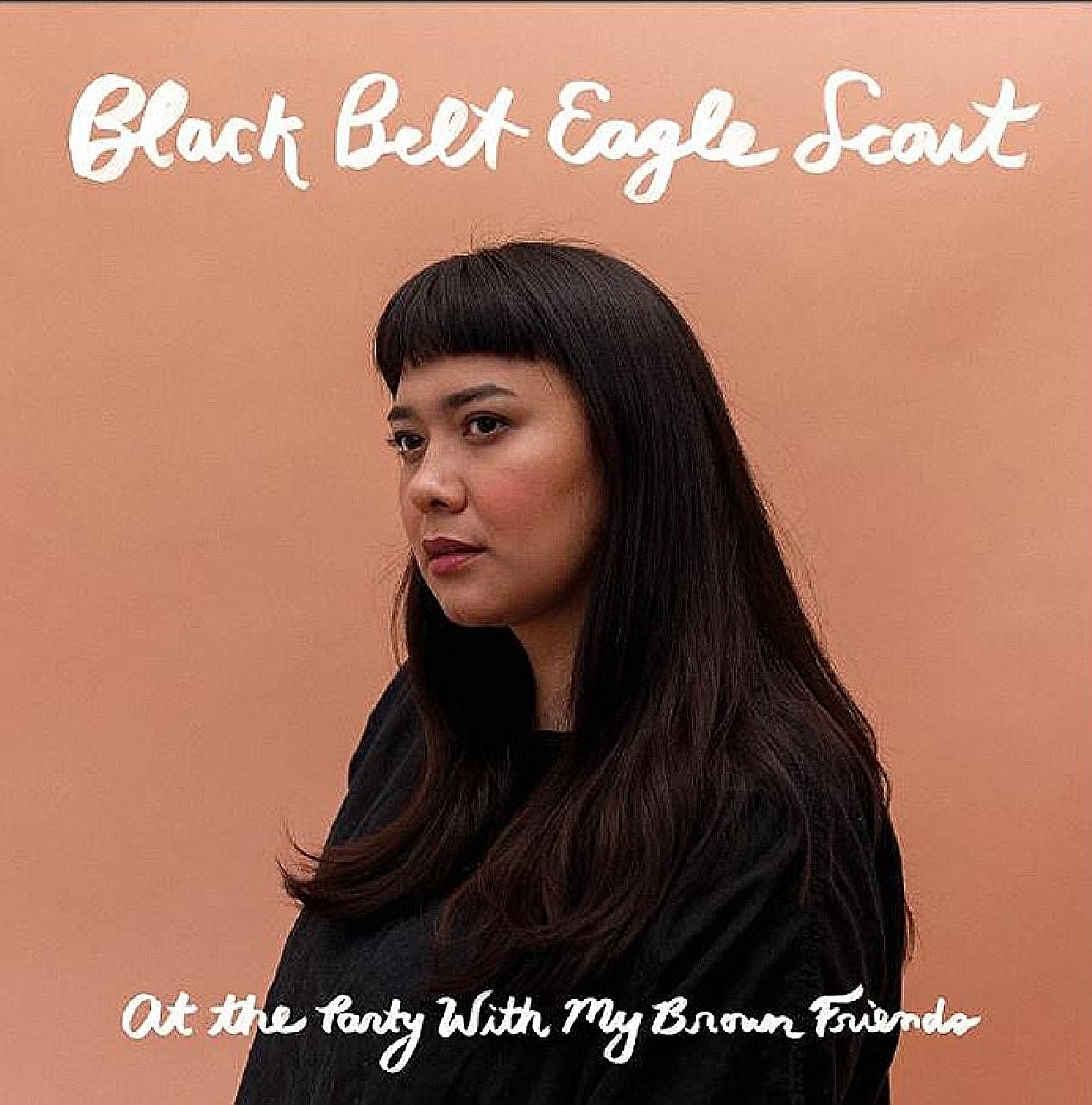INDIE ROCK
AT THE PARTY WITH MY BROWN FRIENDS
Black Belt Eagle Scout
Saddle Creek
4 stars
The conventional dictum for vocalists is that one must enunciate each syllable, to articulate properly, so that the listener can make out what is said the first time.
That is something Katherine Paul, the Oregon-based musician who goes by the more intriguing moniker Black Belt Eagle Scout, blithely does not adhere to.
On her second album, At The Party With My Brown Friends, Paul weaves such a delicate cocoon around her wisp of a voice, she can barely be discerned.
It is as if she is hanging out with friends, at ease, speaking in shorthand. The results are dreamy, shoe-gazey even. Time stands still, all external noise muted.
This, in itself, may not mean much, until one realises it is part of her self-determination, a quiet reclamation of visibility and safe space for her people.
Instead of flag-waving and proselytising, she is gently letting you into her inner sanctum, her tribe, her comfort zone.

Born in Anacortes, Washington, and raised in a small Indian reservation, the Swinomish Indian Tribal Community, Paul has said in an interview that "indigenous music is the foundation for all of my music", and "singing in our language is a spiritual process and it carries on through me in how I create music today".
The opening track, At The Party, hence, manifests the complex, layered personas and expectations she has found herself negotiating - a self-described "queer indigenous, queer feminist" who makes rock music influenced by the post-rock and Riot Grrrl feminist-punk movements.
"How is it, how is it real?/When you don't even notice it?" she asks the difficult question, right from the start, to an audience unused to seeing someone like her wielding an electric guitar. "We will always sing," goes the chorus, reiterating her conviction that singing is a conduit for spiritual communion, as guitars ring and drums pound.
How does one resist token representation while advocating for a voice? In I Said I Wouldn't Write This Song, she feels keenly the weight put upon her. "You feel the eyes/Staring right at you/Tears filled with joy/And hindrance, too," she sings, guitars tight and wound-up, tension unreleased.
In her lo-fi, grunged-up, dressed-down way, she shares an artistic kinship with contemplative female singer-songwriters from two Brooklyn-based bands, namely Emily Sprague of indie-pop trio Florist and Adrianne Lenker of indie-rock band Big Thief.
All are curious about the big, existentialist questions, but filtered through a defiantly understated and individualistic lens. In her songs, you hear Paul disarmed and unguarded as she explores her multifaceted roles.
In Run It To Ya, her guitar riffs ricochet, as she waxes lyrical about a girl who has "eyes/Just like mine". "You like flowers/I have flowers," she avers, her voice echoing in the reverb. "You like milk/I have cows."
She pays tribute to her mother in the stellar closer, You're Me And I'm You, a ballad sung and played so hushed, you feel the ripple of each acoustic strum. "I am the one/The one she loves/No matter what/My heart becomes," she whispers in this cathedral of air, every element awakened.
